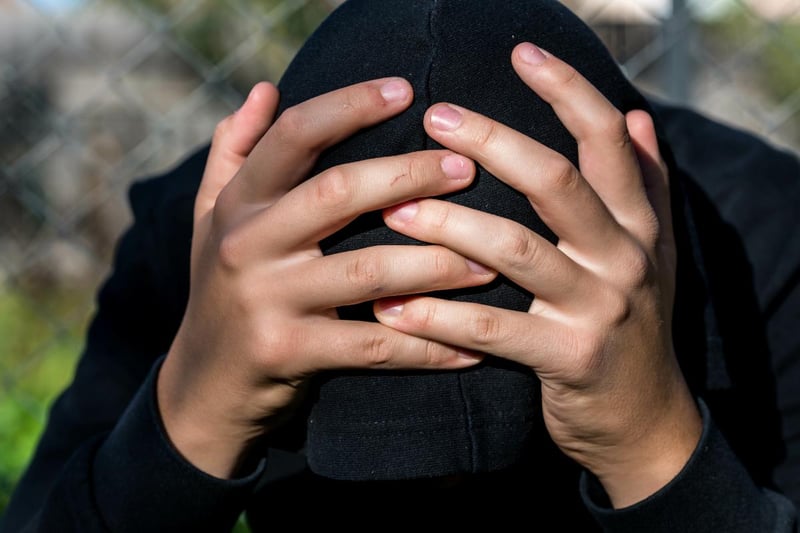5 Signs of Amphetamine Addiction in Teens

Doctors commonly prescribe amphetamines to treat narcolepsy and attention-deficit/hyperactivity disorder (ADHD), especially for teens. However, like any drug, these prescription drugs can be abused when people become dependent on them to function. While people may think they are in control and don't have a problem, the misuse of prescription drugs, like amphetamines can quickly spiral out of control.
If you believe your teen is struggling with amphetamine use, it's important to recognize the signs as soon as possible and seek professional help. Keep the lines of communication open with your son. Contact the team at Stonewater at 662.373.2828 so we can answer any of your questions about our amphetamine use treatment program. Contact us today to learn more.
Signs of Amphetamine Addiction
What are amphetamines? Amphetamines are synthetic drugs that stimulate the central nervous system. They increase alertness and energy, which is why they are so popular. But, they also increase heart rate, respiratory rate, and blood pressure. The most commonly prescribed brand-name amphetamines include:
- Adderall
- Desoxyn
- Dexedrine
- Vyvanse
You know your teen. You know their passions, interests, and habits. If you notice that these things appear to be off or no longer part of your son's life, it's time to raise concerns. Casual drug use can quickly become an addiction if you ignore the signs. There are both physical and behavioral signs that your son could be misusing amphetamines. Here are some amphetamine abuse signs to look out for:
- Physical changes like sudden weight loss, frequent nosebleeds, bloodshot eyes, or body tremors
- Losing interest in activities they previously loved
- No longer socializing with long-time friends
- Acting out uncharacteristically
- Extreme changes in sleep patterns (too much or too little sleep)
Other Physical and Behavioral Signs of Amphetamine Addiction
While yes, many teens experience mood swings due to the ever-changing hormones of just being a teenager, it's essential to pay attention to when changes in your teen do not seem normal.
Physical signs of amphetamine addiction in teens include:
- Poor hygiene
- Malnutrition
- Decreased appetite
- Faster breathing
- Nausea
- Dilated pupils
- Cold, sweaty palms
- Shaky hands
- Chronic headaches
Behavioral signs of amphetamine addiction use in teens include:
- Avoiding eye contact
- Extreme high and low moods
- Not sleeping for an extended period
- Not eating for an extended period
- Breaking curfew
- Acting irresponsibly
- Fast and excessive talking
- Stealing
- Locking bedroom doors
- Making secretive calls
- Lying
- Decline in grades
- Missing school or work
The effects of amphetamine substance use can become severe and life-threatening if left untreated. That's why paying attention to and understanding the symptoms of amphetamine abuse is vital to help you identify if your son needs treatment.
Types of Treatment for Amphetamine Addiction
Because of how dangerous amphetamine use can be, Stonewater takes treatment for amphetamine addiction very seriously. We offer an amphetamine use treatment program for several ways for your teen to receive therapy. Some of these therapy programs are evidence-based, and some are more holistic and experiential. Professionally trained treatment specialists work with your teen to address the traumas, triggers, and challenges that have led to substance use. Our team can offer your teen the best possible chance of recovery at our treatment center through traditional and experiential therapies.
Contact Stonewater to Help With Amphetamine Addiction Treatment
At Stonewater Adolescent Recovery Center, we specialize in providing substance use disorder treatment for adolescent boys. Let us help you identify the signs that your teen is struggling and then provide your teen with the tools he needs to overcome his substance use. We utilize several evidence-based treatment modalities, including:
- Cognitive behavioral therapy (CBT)
- Dialectical behavior therapy (DBT)
- Detox services
- Art and nature therapy
- Equine therapy
- Music therapy
- Family counseling and therapy programs
To learn more about our amphetamine use treatment program, call our treatment team today at 662.373.2828.

.jpg)

